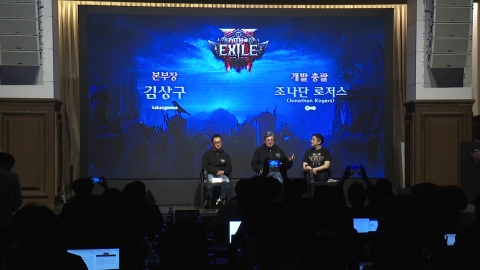18 degrees below zero. It's December...Will there be a record cold wave re-enactment in 2021? [Y-PICK]
Last summer, when the world was boiling due to the all-time heat wave.
'Unprecedented' and 'record' all sorts of modifiers were added.
The air conditioner had to be turned on in September, and the autumn leaves in October were exceptionally short.
So I thought it would be warm this winter, but a strong cold wave was predicted.
There is also a warning from experts that cold weather below minus 18 degrees Celsius will hit the Korean Peninsula.
After the hot summer, a particularly cold winter comes.
Perhaps this heat wave was a scary sign that the winter of 2021 will be repeated, when minus 18 degrees Celsius was recorded?
This year was so hot that the new word 'Autumn Heatwave' came out.
I was wondering when it would cool down, but suddenly the cold came.
People who are embarrassed by the changing weather rush out their winter clothes.
Last October, the Korea Meteorological Administration (KMA) released its weather forecast for this winter.
It was predicted that cold December would begin after November, which is relatively warmer than usual.
That's because La Niño is getting stronger after the ferocious El Niño.
Arctic warming, which has intensified as Arctic sea ice melts, is also playing a role.If jet flows weaken due to the effects of
raniya and Arctic sea ice reduction, cold, dry winds in the north will move south.
At this time, Korea experiences a particularly cold winter.
This is why Maeng-chu, which recorded minus 18 degrees Celsius in 2021, was also the reason.
It's not just the cold.
When precipitation decreases and becomes dry, drought occurs and wildfires become more frequent.
In fact, from December 2021 to February 2022, when La Niña developed, the nation's winter precipitation was the lowest since 1973, when observations began.
Due to the particularly dry weather, forest fire prevention emergency systems have been activated throughout the country.
The economy is also shaky.
Drought in regions that produce soybeans, wheat, and corn hurts production.
This causes global grain prices to rise, causing severe food shortages and inflation.
Heating is a must in cold weather.
When energy consumption increases sharply, so does the demand for natural gas.
Natural gas prices are already fluctuating as an all-time cold wave is expected this winter.
The number of cold-related patients is lower than that of heat-related patients in summer, but the mortality rate is much higher.
The risk is greater for the elderly or low-income people who are vulnerable to keeping warm.
As there are many overheating boilers or fire accidents at home, as well as explosions and falls at construction sites, thorough management is required to prevent personal health and safety accidents.
In fact, whether it's El Niño or La Niña, it's a natural global phenomenon.
The problem is that the impact is unusually extreme.
It is natural that summer is hot and winter is cold, but heat waves and cold waves that break records every time are clearly a red flag that cannot be ignored.
World Meteorological Organization WMO warns
"There is an 80% chance that the Earth will enter an extreme climate within the next five years."
The climate crisis is already reaching an irreversible level.
It can't be like this.
It's time for us to break that vicious cycle.
'Unprecedented' and 'record' all sorts of modifiers were added.
The air conditioner had to be turned on in September, and the autumn leaves in October were exceptionally short.
So I thought it would be warm this winter, but a strong cold wave was predicted.
There is also a warning from experts that cold weather below minus 18 degrees Celsius will hit the Korean Peninsula.
After the hot summer, a particularly cold winter comes.
Perhaps this heat wave was a scary sign that the winter of 2021 will be repeated, when minus 18 degrees Celsius was recorded?
This year was so hot that the new word 'Autumn Heatwave' came out.
I was wondering when it would cool down, but suddenly the cold came.
People who are embarrassed by the changing weather rush out their winter clothes.
Last October, the Korea Meteorological Administration (KMA) released its weather forecast for this winter.
It was predicted that cold December would begin after November, which is relatively warmer than usual.
That's because La Niño is getting stronger after the ferocious El Niño.
Arctic warming, which has intensified as Arctic sea ice melts, is also playing a role.If jet flows weaken due to the effects of
raniya and Arctic sea ice reduction, cold, dry winds in the north will move south.
At this time, Korea experiences a particularly cold winter.
This is why Maeng-chu, which recorded minus 18 degrees Celsius in 2021, was also the reason.
It's not just the cold.
When precipitation decreases and becomes dry, drought occurs and wildfires become more frequent.
In fact, from December 2021 to February 2022, when La Niña developed, the nation's winter precipitation was the lowest since 1973, when observations began.
Due to the particularly dry weather, forest fire prevention emergency systems have been activated throughout the country.
The economy is also shaky.
Drought in regions that produce soybeans, wheat, and corn hurts production.
This causes global grain prices to rise, causing severe food shortages and inflation.
Heating is a must in cold weather.
When energy consumption increases sharply, so does the demand for natural gas.
Natural gas prices are already fluctuating as an all-time cold wave is expected this winter.
The number of cold-related patients is lower than that of heat-related patients in summer, but the mortality rate is much higher.
The risk is greater for the elderly or low-income people who are vulnerable to keeping warm.
As there are many overheating boilers or fire accidents at home, as well as explosions and falls at construction sites, thorough management is required to prevent personal health and safety accidents.
In fact, whether it's El Niño or La Niña, it's a natural global phenomenon.
The problem is that the impact is unusually extreme.
It is natural that summer is hot and winter is cold, but heat waves and cold waves that break records every time are clearly a red flag that cannot be ignored.
World Meteorological Organization WMO warns
"There is an 80% chance that the Earth will enter an extreme climate within the next five years."
The climate crisis is already reaching an irreversible level.
It can't be like this.
It's time for us to break that vicious cycle.
[Copyright holder (c) YTN Unauthorized reproduction, redistribution and use of AI data prohibited]
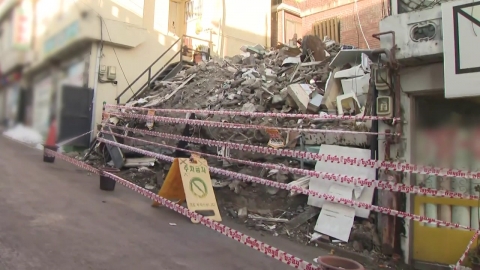
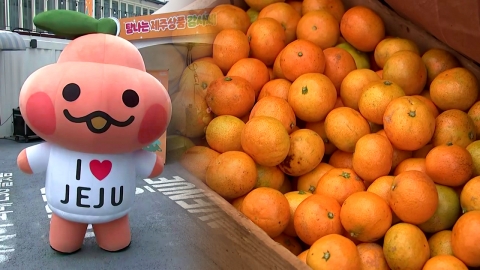
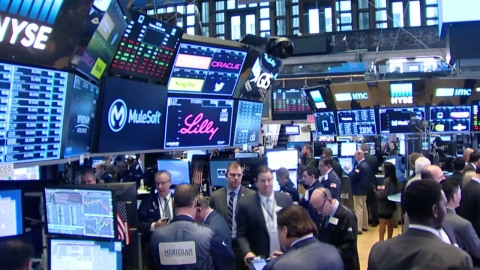
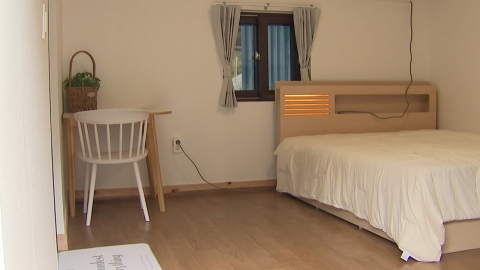


![[Weather] From the weekend, the cold will ease...a wisp of rain in the middle](https://image.ytn.co.kr/general/jpg/2024/1130/202411301109462708_h.jpg)



